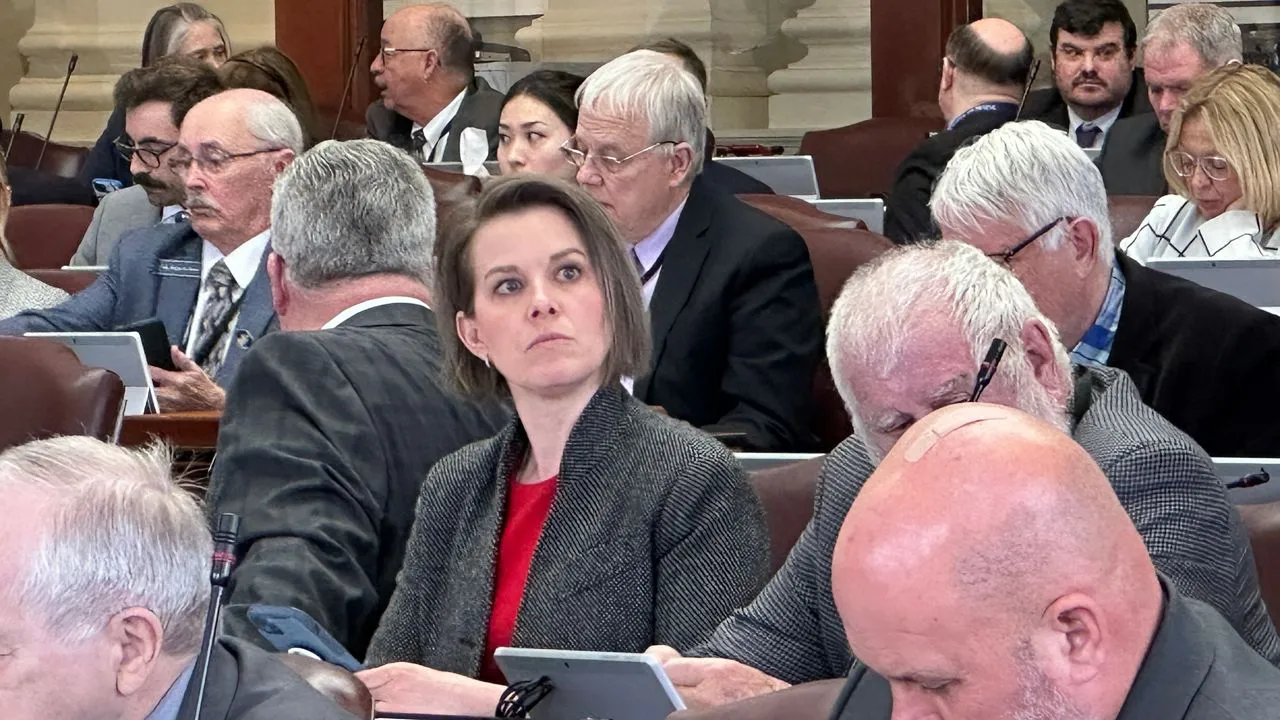Maine Lawmaker Laurel Libby Faces Backlash Over Controversial Social Media Post
In a recent political storm, Representative Laurel Libby, a Republican from Auburn, Maine, has found herself at the center of controversy after being censured by the Maine House for a social media post that many have deemed inappropriate. The post, which included a photograph of a transgender high school athlete, ignited significant backlash from both colleagues and constituents alike.
The Maine House’s decision to censure Libby was not taken lightly. The vote, which passed narrowly with a tally of 75-70, stripped her of her ability to speak or vote on the House floor, citing a violation of the legislative code of ethics. This incident highlights the ongoing tensions within the state legislature regarding LGBTQ+ rights, particularly in relation to the participation of transgender individuals in sports.
Libby’s post criticized Maine’s current policy that permits transgender athletes to compete in girls’ sports. This stance aligns with a broader national debate on the inclusion of transgender individuals in competitive sports, a topic that has polarized opinions across the country. While Libby has maintained her position, stating she will not remove the post and asserting her First Amendment rights, the backlash has raised questions about the responsibilities of lawmakers in representing all constituents, especially marginalized groups.
The response from the Maine Republican Party has been one of support for Libby, as they oppose the inclusion of transgender girls in female sports categories. House Minority Leader Billy Bob Faulkingham publicly criticized the censure, labeling it a “sham” and arguing that it detracts from more pressing issues facing Maine. This division within the legislature underscores the complexity of the issue at hand and reflects a broader societal debate about gender identity and rights.
Adding to the controversy, U.S. Attorney General Pam Bondi has indicated that the federal government may take legal action against Maine if it continues to defy federal antidiscrimination laws regarding transgender rights. This potential legal challenge could have significant implications for the state and its policies, further intensifying the already heated discussions surrounding this topic.
House Speaker Ryan Fecteau condemned Libby’s actions, emphasizing the need for trust and respect between legislators and their constituents. Fecteau’s remarks resonate with many who feel that public statements made by elected officials should reflect a commitment to inclusivity and respect for all individuals, regardless of their gender identity.
The incident has not only attracted local attention but has also garnered national interest, with comments from former President Donald Trump, who threatened to cut federal funding to Maine over its policies on transgender athletes. This national spotlight shines a harsh light on the challenges faced by lawmakers who navigate the delicate balance between personal beliefs and public responsibilities.
As the debate continues, Libby’s case serves as a reminder of the growing trend of lawmakers facing backlash for their social media comments, particularly on sensitive topics like gender identity and LGBTQ+ rights. The implications of this incident extend beyond Maine, contributing to a national dialogue about the role of social media in politics and the potential consequences of public statements made by elected officials.
In conclusion, the censure of Laurel Libby reflects a critical moment in the ongoing discourse surrounding LGBTQ+ rights and the responsibilities of lawmakers. As society grapples with these complex issues, the actions and statements of elected officials will undoubtedly continue to be scrutinized, prompting deeper discussions about representation, respect, and the rights of all individuals in the political arena.
This incident, while specific to Maine, resonates with a broader narrative about the evolving landscape of gender identity and the rights of marginalized communities. As the conversation unfolds, it will be essential for lawmakers to engage thoughtfully and respectfully with their constituents, ensuring that all voices are heard in the pursuit of justice and equality.






Leave a Comment